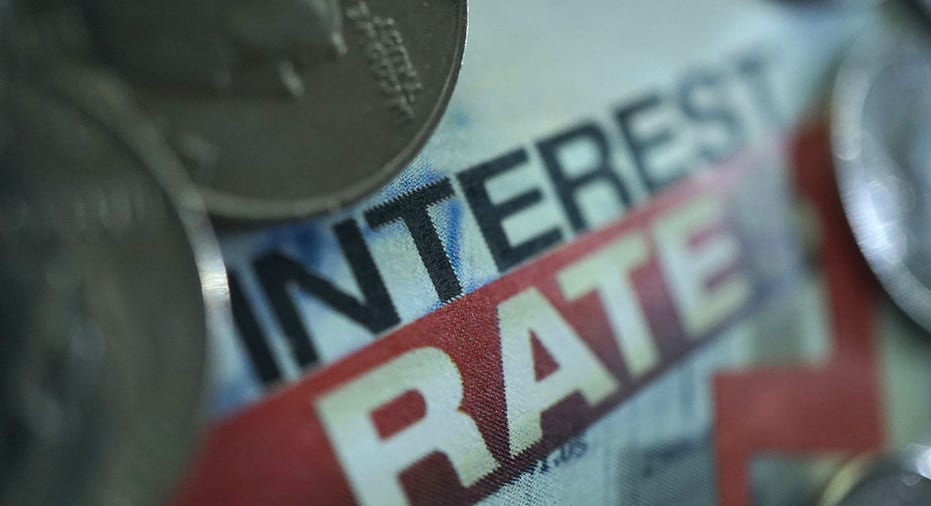Mortgage rates remain above 3%, but homeowners can still save by refinancing
Economists predict rates will continue to move higher through this year

Mortgage rates are increasing as a result of the end of the Fed's economic stimulus and rising inflation. But you can keep your interest rates low. (iStock)
Mortgage rates increased above the 3% mark once again, rising to 3.09% for the average 30-year fixed-rate mortgage, according to the latest data from Freddie Mac.
"Mortgage rates continued to rise this week due to the trajectory of both the economy and the pandemic," Freddie Mac Chief Economist Sam Khater said in a press release Thursday. "Even as the availability of existing homes is improving, prices remain high due to homebuyer demand and limitations on housing starts and permits resulting from the ongoing labor and material shortages. Despite these countervailing forces, we expect the housing market to remain strong as we head into the end of the year."
Even with the housing market’s strength, mortgage rates will continue to slowly increase as the Federal Reserve ends its bond-buying economic stimulus. If you're interested in taking out a mortgage refinance at today’s current rates before they move higher, visit Credible to find your personalized rate without affecting your credit score.
FANNIE MAE AGAIN LOWERS ECONOMIC GROWTH OUTLOOK: WHAT IT MEANS FOR INTEREST RATES
Rising rates to lead to a more expensive housing market
The 3.09% annual percentage rate (APR) increase for 30-year mortgages for the week of Oct. 21 is up from 3.05% the previous week and 2.8% last year, per Freddie Mac data.
Similarly, the 15-year fixed-rate mortgage increased to 2.33%, which is up from 2.3% the week before and matches the rate from the same time last year. The five-year Treasury-indexed hybrid adjustable-rate mortgage (ARM) decreased slightly, dropping from 2.55% to 2.54% this week. This is also down from 2.87% last year.
"Real estate markets are settling into a more typical seasonal groove as we progress through October, with the overheated price growth of early 2021 cooling," George Ratiu, Realtor.com manager of economic research, said. "There are still more hopeful buyers than available homes for sale, even as properties are spending slightly longer on the market. In turn, price growth has slowed, rising 8.6% this past week compared to last year’s double-digit pace.
"However, rising mortgage rates are squeezing many first-time buyers’ budgets," Ratiu said. "Buyers of a median-priced home who lock in today’s rate will spend $145 per month more than they would have a year ago, adding over $1,700 to their yearly payments."
With interest rates set to increase, home buying and refinancing will continue to grow more expensive. If you want to lock in your low rate now to lower your monthly mortgage payment, visit Credible to compare multiple lenders at once and choose the best mortgage lender for you.
Mortgage interest rate increases to continue through December
Mortgage rates rose for the second consecutive week, and economists expect the upward trend to continue, reaching just under 3.5% by the end of the year.
"The Freddie Mac fixed rate for a 30-year loan rose again this week, following the upward momentum of the 10-year Treasury, which hit its highest level since mid-May this week," Ratiu said. "The rate rose four basis points to 3.09%, as investors and markets are digesting the fact that the massive monetary stimulus of the past eighteen months has materialized in higher prices across the board.
"Just as importantly, with employers finding they have to pay higher wages in the struggle to fill over 10 million open jobs, inflationary pressures are not likely to recede any time soon," he said. "In other words, the one-two punch of rising inflation and the Fed tapering asset purchases will continue to drive mortgage rates higher, likely reaching 3.4% by December."
Inflation recently rose to an annual rate of 5.4%, the highest rate in 13 years, according to the U.S. Bureau of Labor Statistics (BLS). And now, economists are saying high inflation rates are not transitory. But as inflation pushes rates higher, borrowers can keep their mortgage rates low by visiting Credible and comparing multiple lenders at once to find the best option for them.
MBA ECONOMIST SAYS INFLATION NOT TRANSITORY: HERE’S WHAT THAT MEANS FOR INTEREST RATES
Have a finance-related question, but don't know who to ask? Email The Credible Money Expert at moneyexpert@credible.com and your question might be answered by Credible in our Money Expert column.




















